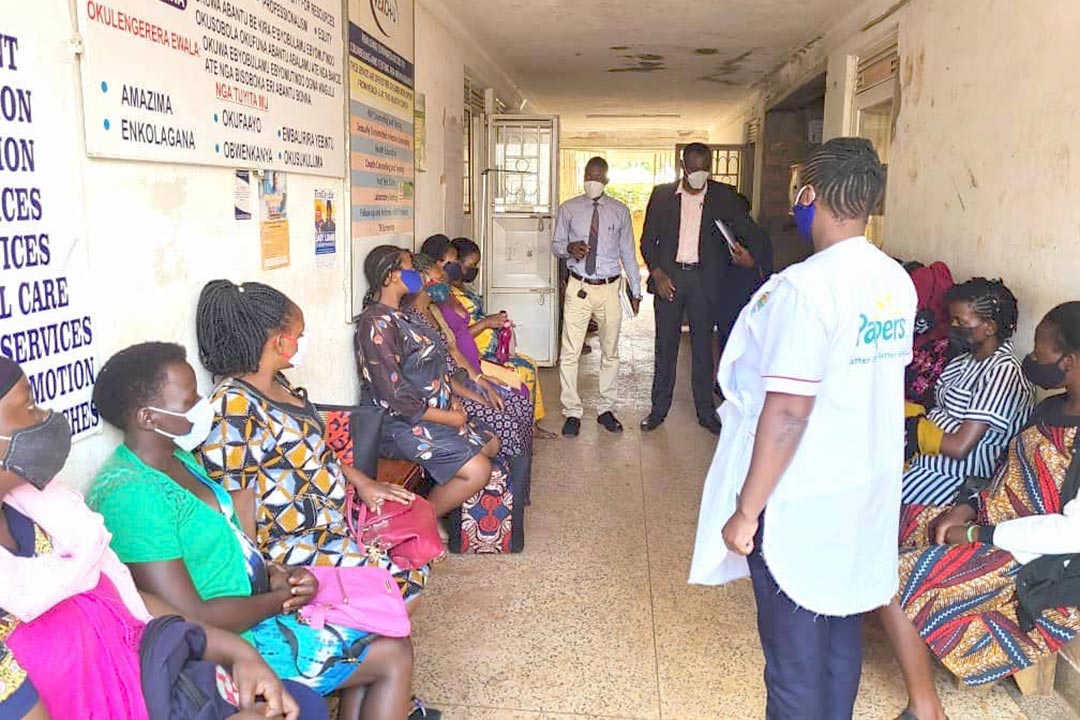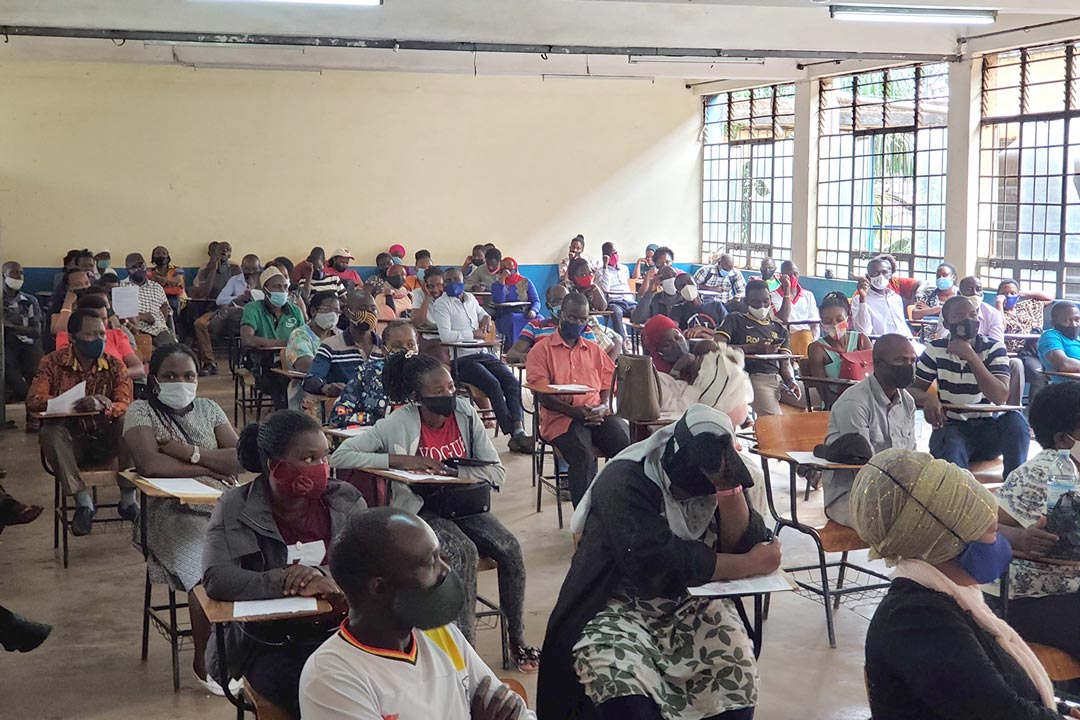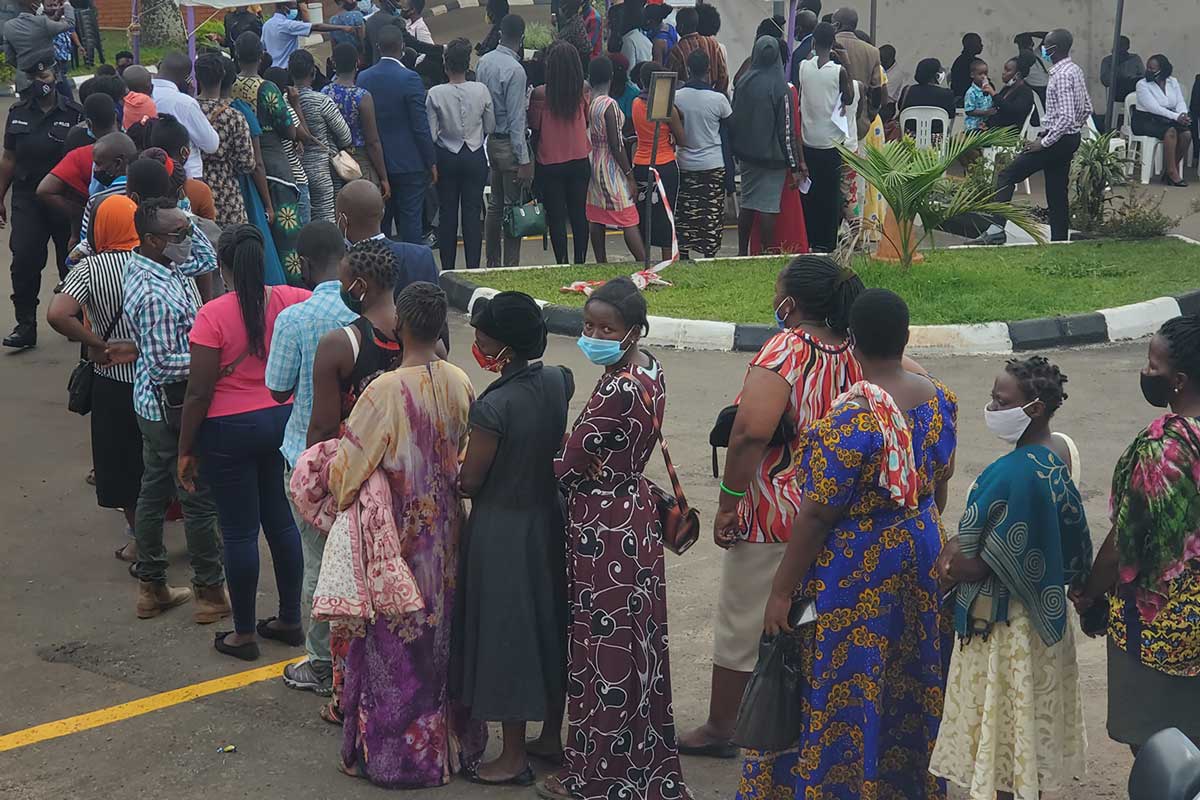Uganda’s door-to-door polio campaign targets unimmunised children
Uganda is working hard to ensure that all the gains made in the fight against polio aren’t lost to the pandemic.
- 31 January 2022
- 4 min read
- by Evelyn Lirri
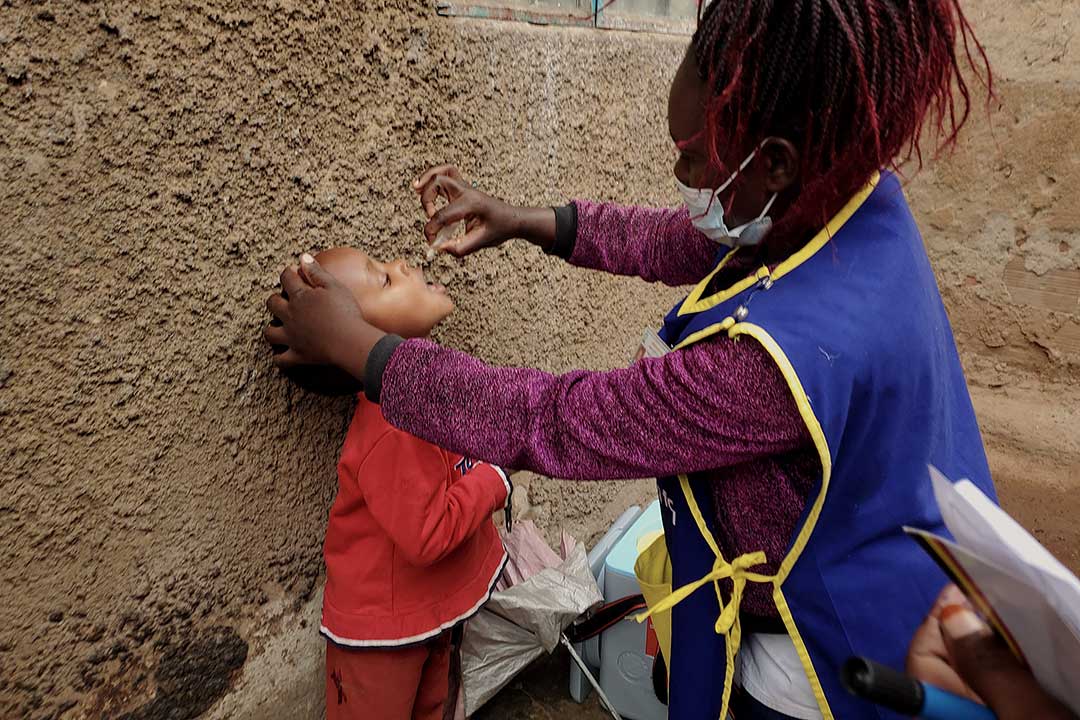
On an unusually cold January day, Justine Wamala is preparing breakfast for her three children when a health worker arrives at her house.
“Do you have any child who is five years or under? We are here to immunise them against polio,” Juliet Acamango, the health worker, announces.
“As a country, what we are doing is to ensure that the gains we have made in managing childhood vaccine-preventable diseases are not reversed.”
Two of Wamala’s children are under the age of five. So she brings them out to be vaccinated.
Wamala is grateful that she does not have to make the long trek to the nearest health facility to have her children immunised, as she does for other diseases.
“I had already heard about the vaccination exercise from a community health worker so I have been waiting for them to arrive in my area,” says Wamala, who resides in Namuwongo, a sprawling informal settlement on the outskirts of Kampala.
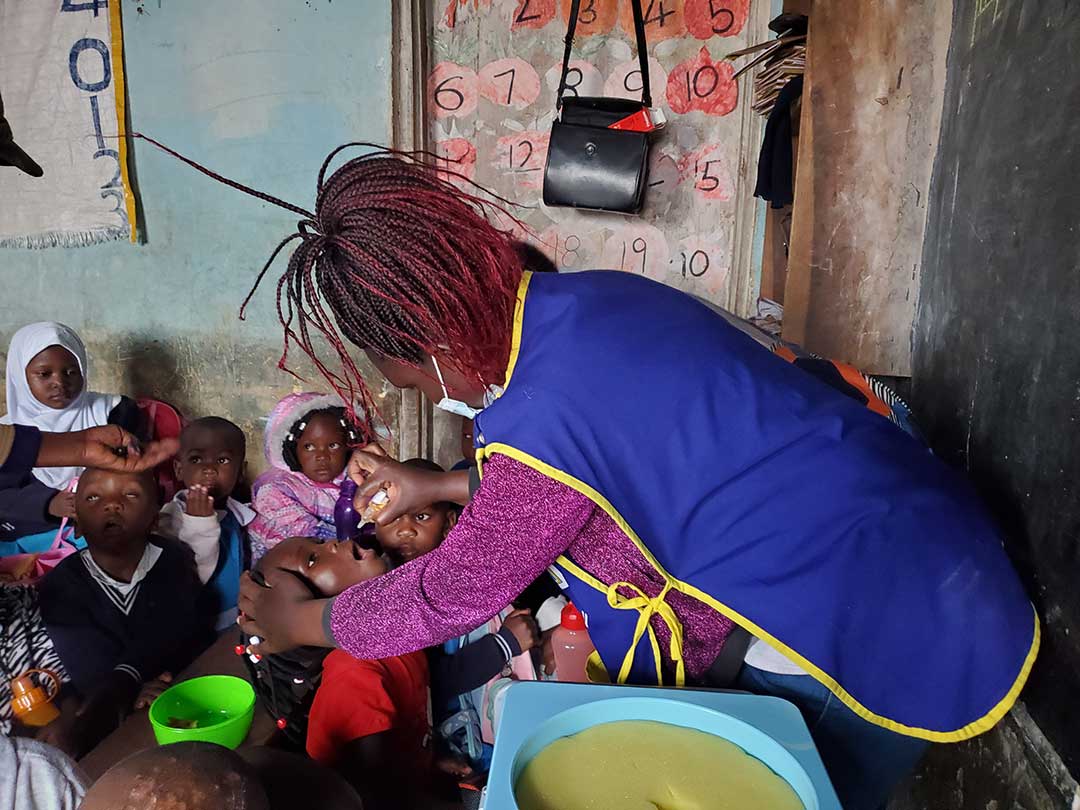
Acamango’s visit to Wamala is part of the first round of a door-to-door polio vaccination campaign that is running across the country, after health officials detected the presence of the vaccine-derived polio type 2 (cVDPV2) virus in samples of faecal matter that was tested in August 2021. Vaccine-derived polio only emerges in populations with dangerously low vaccine coverage.
Wamala is grateful that she does not have to make the long trek to the nearest health facility to have her children immunised, as she does for other diseases.
“I had already heard about the vaccination exercise from a community health worker so I have been waiting for them to arrive in my area,” says Wamala, who resides in Namuwongo, a sprawling informal settlement on the outskirts of Kampala.
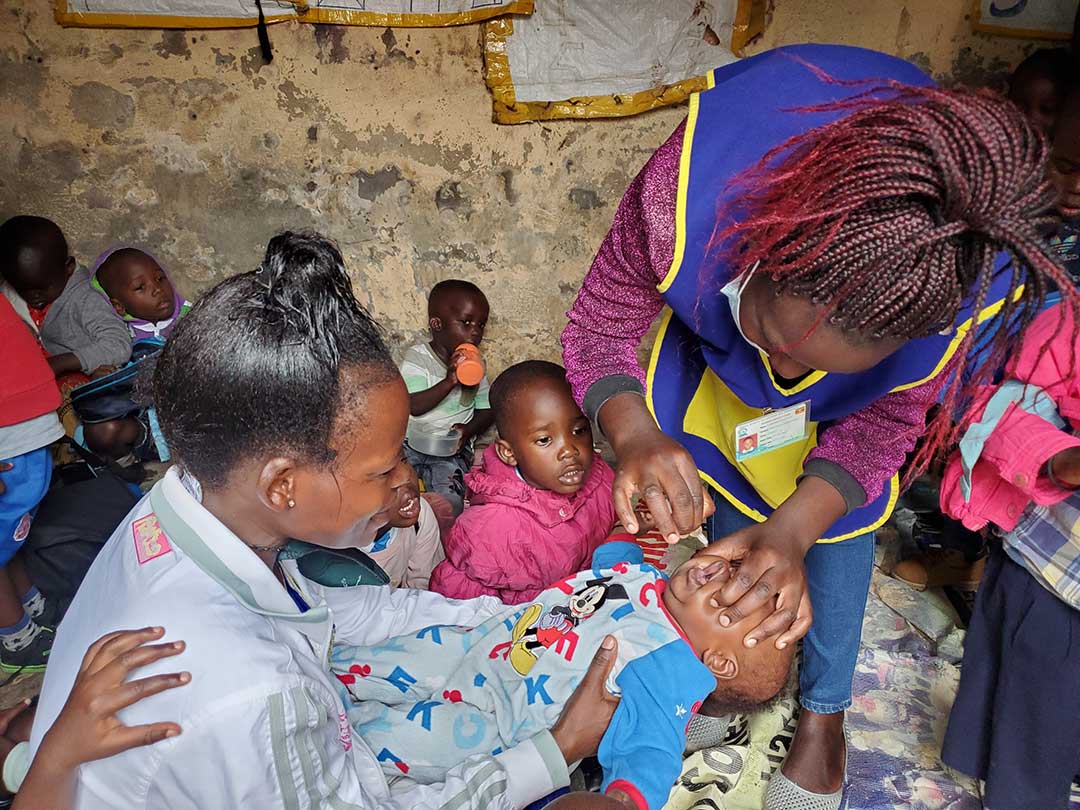
Acamango’s visit to Wamala is part of the first round of a door-to-door polio vaccination campaign that is running across the country, after health officials detected the presence of the vaccine-derived polio type 2 (cVDPV2) virus in samples of faecal matter that was tested in August 2021. Vaccine-derived polio only emerges in populations with dangerously low vaccine coverage.
An estimated 8.8 million children under the age of five are expected to be immunised during the door-to-door exercise, including children who have already been previously vaccinated.
“The door-to-door strategy is the gold standard that has been tested globally and used by many countries. It is designed to reach every single child in the villages and settlements. It avoids missing unvaccinated children and considers the fact that children under five primarily live in the home environment,” says Margaret Muhanga, the State Minister for Health in charge of Primary Health Care.
Have you read?
While current immunisation campaigns facilitated by the National Expanded Programme on Immunisation (EPI) have been effective, disruptions exacerbated by the COVID-19 pandemic have contributed to a growing number of unvaccinated children, making them vulnerable to contracting vaccine-preventable diseases.
To ensure everyone has information about the vaccination exercise and the importance of having their children inoculated, village health team (VHT) volunteers carry out community announcements for several days before the exercise. Community members can also use the opportunity to ask questions.
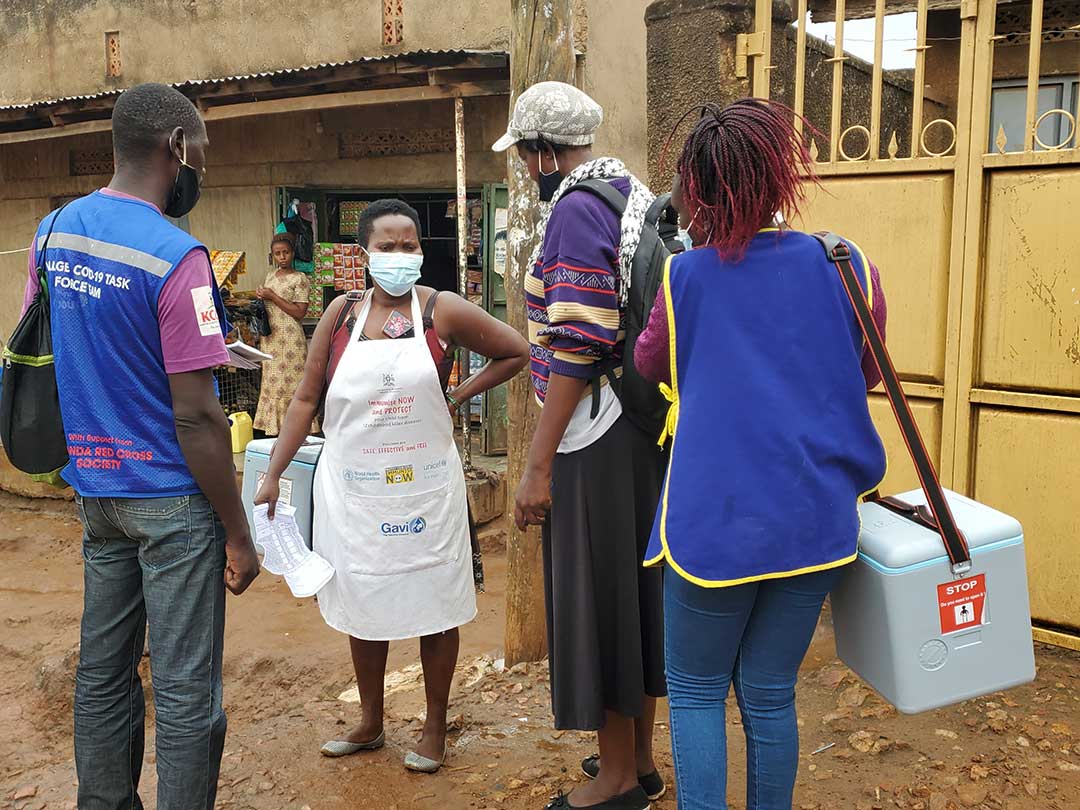
“We are also using this opportunity to tell them about the importance of vaccinating against other diseases,” says Florence Nakalema, a coordinator for Village Health Teams in Namuwongo. “Many parents often miss taking their children for vaccination because of distance, while others say they do not have time. But now we are bringing the exercise to their doorstep,” adds Nakalema, who has been a Village Health Team volunteer for over two decades.
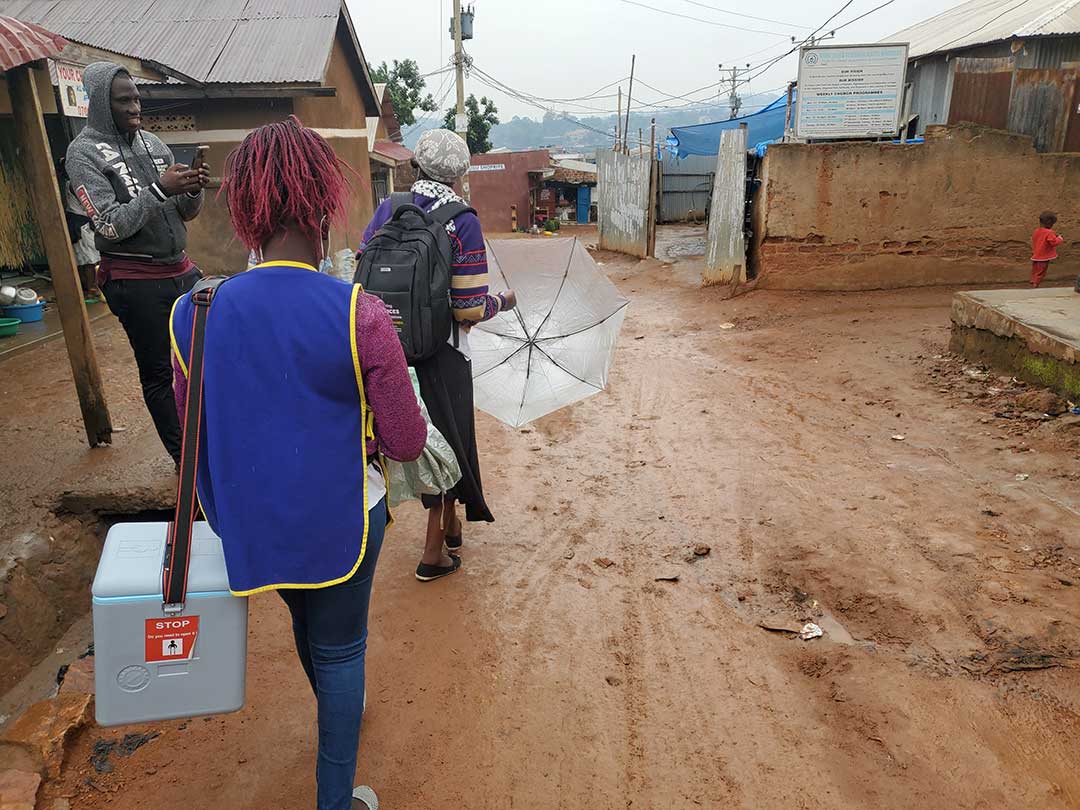
Dr Alfred Driwale, the programme manager for EPI, explains that although the country is free of wild poliovirus, the risk of circulating vaccine-derived polio type 2 (cVDPV2) continues to grow because of the presence of unimmunised children and the limited access to safe water and sanitation.
“In a country where you get outbreaks of cholera, it is an indication that there is a silent transmission of diseases that are spread from faecal matter from one person to another. The first line of action to fight against this type of polio is good hygiene, handwashing, and sanitation,” says Dr Driwale.
He adds that, with a strong surveillance system in place, health workers are also able to report any suspected cases of polio in a timely fashion.
In conclusion, Dr Driwale says, “As a country, what we are doing is to ensure that the gains we have made in managing childhood vaccine-preventable diseases are not reversed. On a daily basis, health workers across the country ensure that any child who has paralysis on the leg has to be recorded and investigated for polio.”
All photos by Evelyn Lirri
